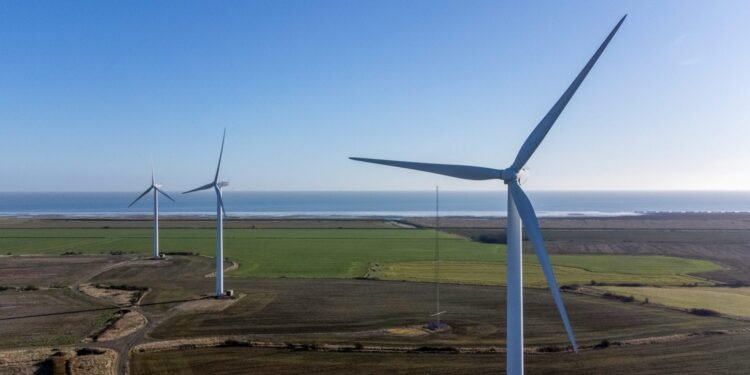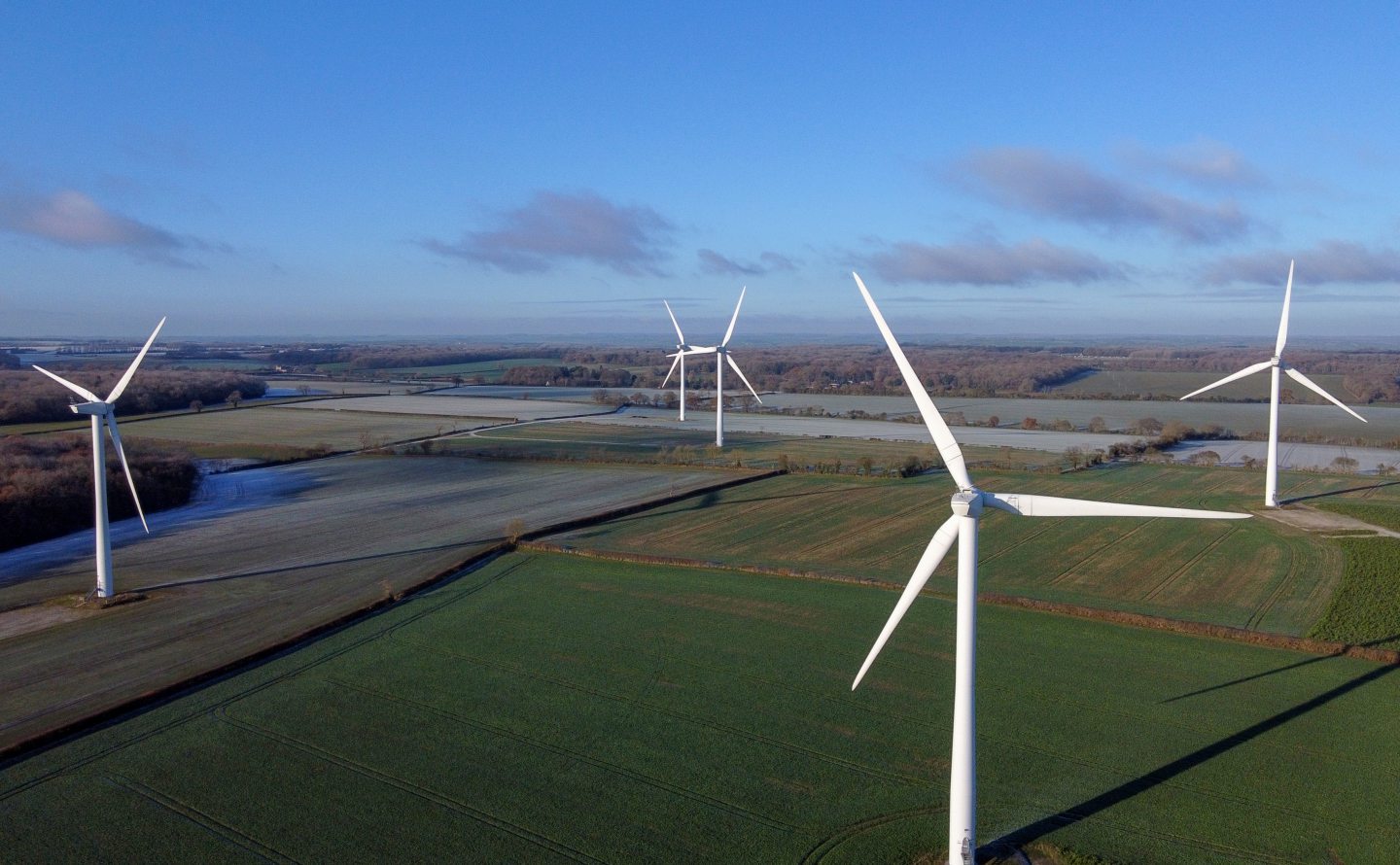The UK government has announced the creation of an Onshore Wind Industry Taskforce as part of efforts to double deployment by 2030.
Labour removed the de facto ban on onshore wind in England in of its first moves after taking office, and developers are already eyeing new projects.
The government said the taskforce brings together key organisations, industry, regulatory and other relevant bodies to unlock barriers onshore wind developers face.
It will also aim to ensure sustainability and investment in the UK supply chain.
Energy secretary Ed Miliband and EDF Renewables chief executive Matthieu Hue will chair the new group, which will set out a “roadmap to 2030 and beyond” for the sector.
The taskforce will then transition to an overarching body to keep track of progress.
Other members of the taskforce include energy security minister Michael Shanks, Scottish Renewables CEO Claire Mack and RenewableUK CEO Dan McGrail among others.
Collaboration ‘vital’ to deliver clean energy
Mack welcomed the move and said a similar move by the Scottish Government to establish the Onshore Wind Sector Deal had been a “game changer” for the industry.
“What we have learned from delivering the sector deal can play a crucial role for the Taskforce by helping to identify current barriers to deployment across the UK and offering solutions on how to improve the planning system and develop opportunities for the supply chain,” Mack said.
“Strong collaboration between our industry and government is vital if we are to deliver on our clean energy ambitions and through the sector deal in Scotland we are already feeling the benefits of this.”
Meanwhile, McGrail said the Taskforce announcement demonstrates “strong backing for onshore wind from Westminster”.
“Onshore wind already generates over 20% of the UK’s electricity a year, so it has a key role in bringing secure, low-cost power to the whole country and specifically tailored economic benefits to local communities hosting new projects,” he said.
“Our research shows that delivering 30 gigawatts of onshore wind by the end of the decade would boost the economy by £45 billion and create 27,000 jobs.”
Hue said onshore wind is “one of the most cost effective forms of new electricity generation that can be developed at pace and at scale”.
“However, if we are to achieve our net zero ambitions, we need to accelerate its deployment and tackle some of the challenges facing our industry, such as grid and supply chain pressures,” he said.
Recommended for you




 © Bloomberg
© Bloomberg






